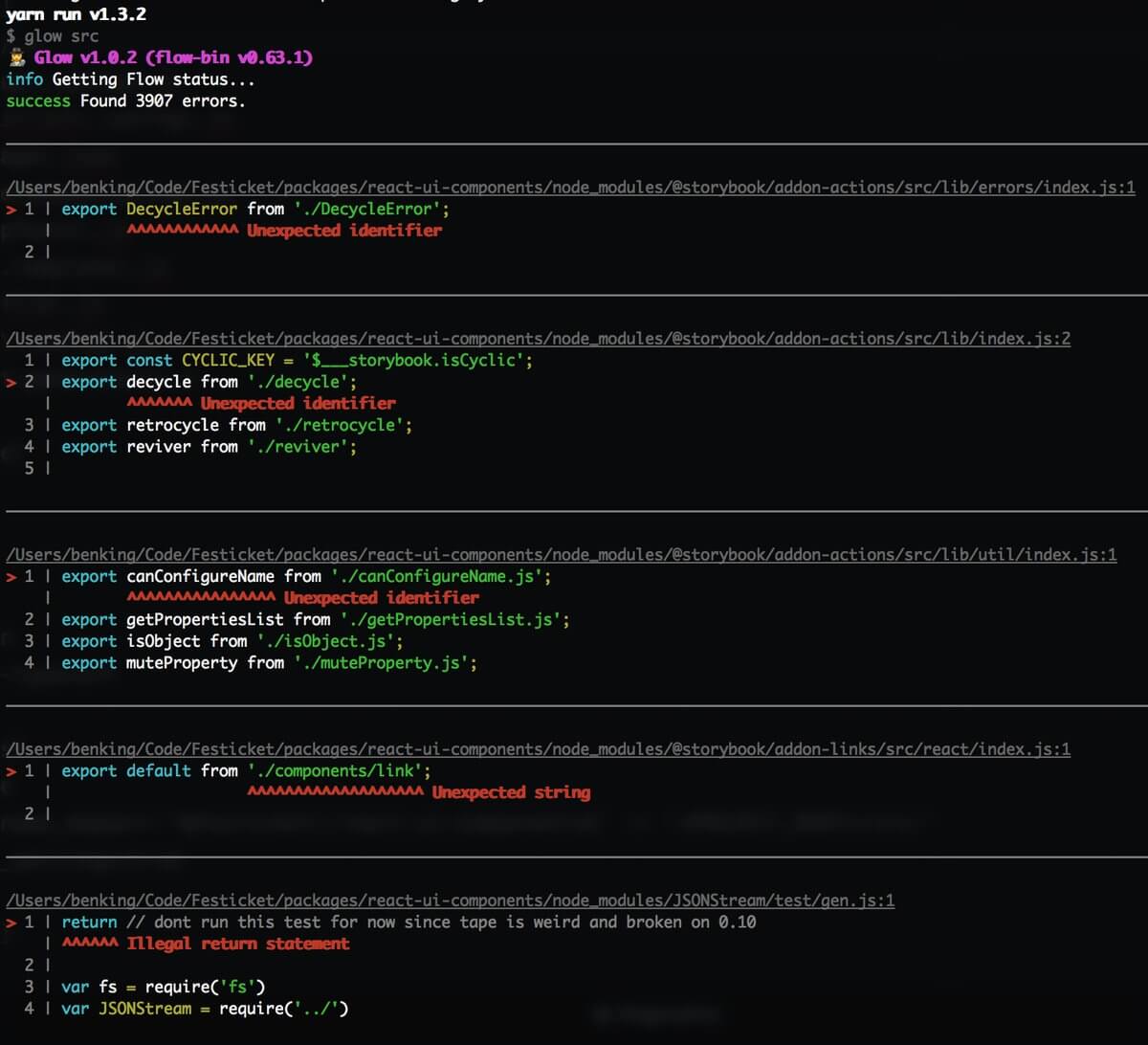每天推薦一個 GitHub 優質開源項目和一篇精選英文科技或編程文章原文,歡迎關注開源日報。交流QQ群:202790710;電報群 https://t.me/OpeningSourceOrg

今日推薦開源項目:《代碼錯誤檢查器 Glow》GitHub地址
推薦理由:Glow是一款代碼錯誤檢查器,能夠明顯地標記出代碼中的錯誤。基於Flow對JavaScript代碼的檢查,Glow能讓Flow檢查出的錯誤有明顯的標記。
同時,Glow還有以下特點:
1.更好的列印,代碼突出顯示類型的錯誤;
2.有互動式的watch模式;
3.通過使用球體的錯誤進行過濾

今日推薦英文原文:《Top 8 open source AI technologies in machine learning》作者:
推薦理由:使用這些開源的人工智慧你技術,讓你的機器學習能力上升一個台階。
Top 8 open source AI technologies in machine learning
Artificial intelligence (AI) technologies are quickly transforming almost every sphere of our lives. From how we communicate to the means we use for transportation, we seem to be getting increasingly addicted to them.
Because of these rapid advancements, massive amounts of talent and resources are dedicated to accelerating the growth of the technologies.
Here is a list of 8 best open source AI technologies you can use to take your machine learning projects to the next level.
1. TensorFlow
Initially released in 2015, TensorFlow is an open source machine learning framework that is easy to use and deploy across a variety of platforms. It is one of the most well-maintained and extensively used frameworks for machine learning.
Created by Google for supporting its research and production objectives, TensorFlow is now widely used by several companies, including Dropbox, eBay, Intel, Twitter, and Uber.
TensorFlow is available in Python, C++, Haskell, Java, Go, Rust, and most recently, JavaScript. You can also find third-party packages for other programming languages.
The framework allows you to develop neural networks (and even other computational models) using flowgraphs.
2. Keras
Initially released in 2015, Keras is an open source software library designed to simplify the creation of deep learning models. It is written in Python and can be deployed on top of other AI technologies such as TensorFlow, Microsoft Cognitive Toolkit (CNTK), and Theano.
Keras is known for its user-friendliness, modularity, and ease of extensibility. It is suitable if you need a machine learning library that allows for easy and fast prototyping, supports both convolutional and recurrent networks, and runs optimally on both CPUs (central processing units) and GPUs (graphics processing units).
Initially released in 2007, scikit-learn is an open source library developed for machine learning. This traditional framework is written in Python and features several machine learning models including classification, regression, clustering, and dimensionality reduction.
Scikit-learn is designed on three other open source projects—Matplotlib, NumPy, and SciPy—and it focuses on data mining and data analysis.
4. Microsoft Cognitive Toolkit
Initially released in 2016, the Microsoft Cognitive Toolkit (previously referred to as CNTK), is an AI solution that can empower you to take your machine learning projects to the next level.
Microsoft says that the open source framework is capable of "training deep learning algorithms to function like the human brain."
Some of the vital features of the Microsoft Cognitive Toolkit include highly optimized components capable of handling data from Python, C++, or BrainScript, ability to provide efficient resource usage, ease of integration with Microsoft Azure, and interoperation with NumPy.
5. Theano
Initially released in 2007, Theano is an open source Python library that allows you to easily fashion various machine learning models. Since it's one of the oldest libraries, it is regarded as an industry standard that has inspired developments in deep learning.
At its core, it enables you to simplify the process of defining, optimizing, and assessing mathematical expressions.
Theano is capable of taking your structures and transforming them into very efficient code that integrates with NumPy, efficient native libraries such as BLAS, and native code (C++).
Furthermore, it is optimized for GPUs, provides efficient symbolic differentiation, and comes with extensive code-testing capabilities.
6. Caffe
Initially released in 2017, Caffe (Convolutional Architecture for Fast Feature Embedding) is a machine learning framework that focuses on expressiveness, speed, and modularity. The open source framework is written in C++ and comes with a Python interface.
Caffe's main features include an expressive architecture that inspires innovation, extensive code that facilitates active development, fast performance that accelerates industry deployment, and a vibrant community that stimulates growth.
7. Torch
Initially released in 2002, Torch is a machine learning library that offers a wide array of algorithms for deep learning. The open source framework provides you with optimized flexibility and speed when handling machine learning projects—without causing unnecessary complexities in the process.
It is written using the scripting language Lua and comes with an underlying C implementation. Some of Torch's key features include N-dimensional arrays, linear algebra routines, numeric optimization routines, efficient GPU support, and support for iOS and Android platforms.
8. Accord.NET
Initially released in 2010, Accord.NET is a machine learning framework entirely written in C#.
The open source framework is suitable for production-grade scientific computing. With its extensive range of libraries, you can build various applications in artificial neural networks, statistical data processing, image processing, and many others.
Conclusion
Before starting to build a machine learning application, selecting one technology from the many options out there can be a difficult task. Therefore, it's important to evaluate several options before making a final decision.
Furthermore, learning how the various machine learning technologies work can assist you to make a good decision.
Apart from the above-listed AI technologies in machine learning, which are you using in your projects? Is there any other framework, library, or toolkit not discussed? Please let us know in the comment section below.
每天推薦一個 GitHub 優質開源項目和一篇精選英文科技或編程文章原文,歡迎關注開源日報。交流QQ群:202790710;電報群 https://t.me/OpeningSourceOrg
